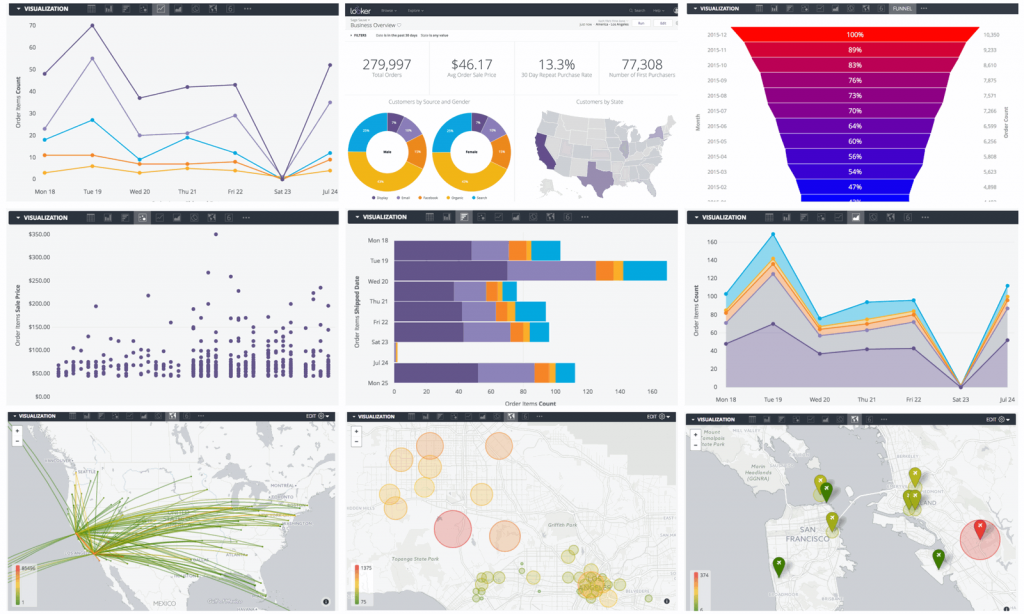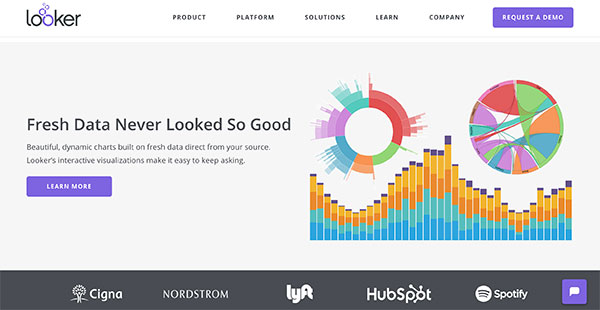How do you up your game in the competitive world of Data and Analytics? Well, one way is through acquisition.
Google recently acquired Looker, a Santa Cruz-based data analytics startup, for a whopping $2.6 billion. The all-cash deal was the fourth-biggest in Google’s history and this has helped Google Cloud close the gap in the cloud space market against Amazon (Amazon Web Services) and Microsoft (Azure).
Looker was set up in 2012 and uses big data to assist companies to retain consumers and understand their behavior. With Looker’s assistance, video game developers like King, the makers of Candy Crush, have been able to retain their players and media outlets like The Economist can better strategize their subscriber model.
What is Looker?
Looker’s cloud-based platform has two components –
- A powerful modeling platform that helps the developers by crawling target databases to generate baseline data models. That happens through an SQL-like modeling language which the user uses to ‘codify’ the data.
- End-user visualisation tool provides self-service analytics – allowing for quick analysis of data by analysts, marketers and business owners.
But what could have led Google to buy Looker and what can come out of this deal? We look at three possibilities:
An Upgrade
The acquisition will likely see a significant upgrade to Google’s data management ecosystem. Looker would make it easy for Google Cloud to build a data exploration platform at enterprise level, building on their Google Data Studio offering. In the same way that Tableau and Microsoft Power BI do, Looker could quickly make data accessible for the entire organization as a bolt on for Google Cloud.
What do I mean by that? Simply put: a tool for business users and to find insights in their otherwise unwieldy datasets. Looker will allow users to quickly access petabytes of data through Google Cloud Service’s products, such as BigQuery. One of the true powers of this type of integration is going to be in accessing Machine Learning Capabilities (Big Query Machine Learning), that allows creating and deploying machine learning models simple. Looker will most likely increase the pace of model development and allow business users to get to learning much faster.

Diversification Through Acquisition
With the transaction in place, Google has also continued the path to diversify away from strictly online advertising which accounts for 80% of its revenue. It’s no secret that Google is looking to expand its services – and become an all-round solution for businesses. Some may call it world domination.
Multi-cloud data analytics strategy
The deal also strengthens the movement of big players like Google consolidating analytics on top of their cloud environments. It also signals a move towards multi-cloud data analytics strategy and shows that the market has a larger role to play in the multi-cloud ecosystem for analytics and BI players. As more and more analytics workload moves to the cloud, Google would have realised how data management, data preparation and data governance can provide real value to its customers.
As Google Cloud CEO Thomas Kurian himself put in a conference call with the press and analysts regarding Looker,
“We continue to support multiple clouds because we feel that’s what customers want. They also want to standardise on one toolset.”
Thomas Kurian, Google Cloud CEO.
However, one thing that Google says it will not shift is its strategy. The acquisition is to implement Looker’s approach for crawling and integrating with data in multiple clouds. For that, Google is already seeking support of Anthos that offers a hybrid model that is cloud agnostic.
By acquiring Looker, Google has jumped to the third place in the cloud infrastructure market and will utilise Looker to undergo a digital transformation in data warehousing and BI.
What are your thoughts on the acquisition? let us know over on Twitter.
The Author, Matthew Nixon: @mattalytic
Molzana: @MOLZANAuk










